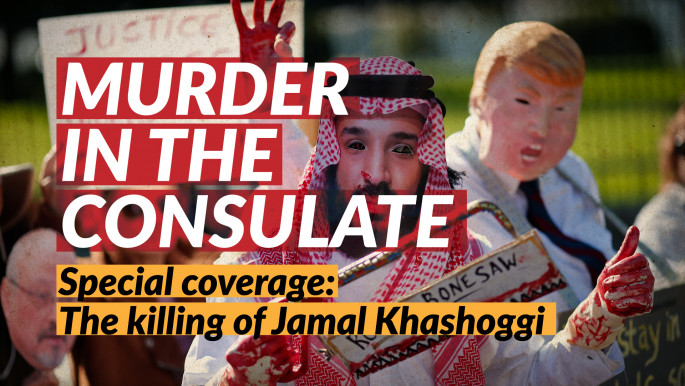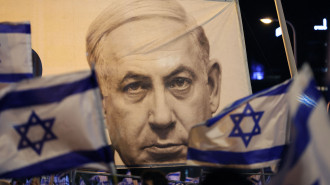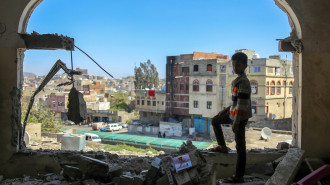EU-Saudi relations after Khashoggi
The incident has put the entire West into a very uncomfortable position: how to respond to a brutal crime against a Saudi dissident, without hurting the value relations with the most important Arab ally?
The European Parliament resolution of October 25 2018 on the killing of journalist Jamal Khashoggi in the Saudi consulate in Istanbul (2018/2885(RSP)) strongly condemned in the strongest possible terms the torture and killing of Jamal Khashoggi, and reiterated long list of Saudi "sins" and violations of basic human rights.
Moreover, the parliament once again called on the Council to reach a common position in order to impose an EU-wide arms embargo on Saudi Arabia and to respect Common Position 2008/944/CFSP.
The European Parliament also repeated its demand addressed to EU foreign policy chief Federica Mogherini to recall the EU ambassador from Riyadh "until the government of Saudi Arabia ceases the bombarding of civilians in Yemen, takes positive steps in the field of human rights."
The divided states of Europe
 |
|
| Read more: Murder in the Saudi consulate: Inside Jamal Khashoggi's killing |
Strong political messages from the European Parliament have also failed to persuade EU governments to adopt a unified position on Saudi Arabia.
While all 28 Foreign Ministers of the EU Member States agreed "to demand a credible and transparent investigation, and decided it will consider the most appropriate action, once the results of the investigation emerge," it is highly debatable what concrete measures are to expect from the EU and its member states.
Many fear that the EU will once again prove that its foreign common policy remains an illusion and that once again, their conflicting interests will strongly affect the final decision (if any), contributing to the widespread belief of EU impotence.
Read also: EU to add Saudi Arabia to dirty money blacklist despite resistance
In the words of Christopher Davidson, an associate professor in Middle East politics at Durham University: "The Saudi dilemma exposes the fantasy of an EU foreign policy, as when it comes to the crunch, individual nation-state political economies will remain the most important factor."
Khashoggi's murder also reveals the double standards when it comes to responding to such crimes. Recent examples show that EU countries, especially the UK have adopted a completely different approach in the case of the attack on former Russian Sergei Skripal and his daughter. British Prime Minister Theresa May and officials from other European countries rushed to point fingers at Kremlin while setting a coordinated response against Moscow.
 |
Many fear that the EU will once again prove that its foreign common policy remains an illusion and that once again, their conflicting interests will strongly affect the final decision (if any), contributing to the widespread belief of EU impotence |  |
The UK expelled Russian intelligence officers from the country and introduced new sanctions. However, although Khashoggi's murder triggered initial condemnation, it was very soon replaced with softer language and expressions of concern.
Close diplomatic and strategic ties of some key EU member states with Saudi Arabia further complicate matters. Although many Saudi partners in Europe would prefer the kingdom to conduct foreign policy in a different way, especially in Yemen and towards Qatar, they still see Riyadh as a factor of stability in the region and a valuable partner against Iran and the 'war on terror'.
So is it possible that Khashoggi's killing will have no consequences for EU relations with Saudi Arabia and they will carry on with their business as usual?
The recent example of Spain indicates that this may be the case. The Spanish government, even before Khashoggi's death, said it would stop licensing arms exports to Riyadh, but after Saudi threats to terminate contracts with Spanish firms, Spanish authorities lowered the tone and dropped the issue.
According to Davidson, it is unlikely that there will be a unified European position on Saudi Arabia in the wake of the Khashoggi affair given the much greater scale of arms exports from France to the kingdom compared to other European states. While others may halt their exports and issue condemnations of Saudi behaviour, it seems more likely that France will try to find a 'work around' solution that allows them to condemn individuals within Saudi Arabia, rather than the Saudi state itself.
But the same argument could be applied to Britain which sold military equipment worth more than $1.4 billion to Riyadh in the first six months of 2017.
Furthermore, during MbS' visit to the UK last March, both states set a £65 billion ($90 billion) mutual trade and investment target for the coming years. Such deals are becoming ever more important once Britain leaves the EU.
Read also: Brexit Britain: Financially destitute and morally bankrupt
On the contrary, Germany leads the caravan of states halting arms sales to Saudi Arabia. Finland and Denmark joined Germany stopping all future arms sales and sending of military equipment to the Saudi government.
According to Andrew Smith of Campaign Against Arms Trade: "The murder of Jamal Khashoggi has caused some European leaders to question their political and military support for the Saudi regime."
Smith added: "However, it should never have taken the murder of a journalist for these governments to realise that it is wrong to arm and support some of the most repressive dictatorships in the world."
 |
Saudi Arabia has been able to play European disunity to its advantage, often by convincing those states considering criticism of the kingdom that if they do so then they will simply lose out on lucrative trade opportunities to their neighbours (and rivals) |  |
Saudis bet on EU's disunity
It seems that Saudis are aware of Europe's hesitation and internal divisions, given the country's geostrategic and energy importance, and it may try to play on this card.
The incident in Istanbul shows that even if some states adopt measures against the wealthy kingdom and pull out of deals that they have, other states, like Russia or China will quickly jump into the vacuum created and take the window of opportunity to make lucrative deals while hoping that the whole dirt surrounding the murder will be quickly swept under the carpet.
Read also: 'China is a good friend to Saudi Arabia': MbS bags $10 billion Beijing oil deal
Davidson noted that, "Saudi Arabia has been able to play European disunity to its advantage, often by convincing those states considering criticism of the kingdom that if they do so then they will simply lose out on lucrative trade opportunities to their neighbours (and rivals)."
Nevertheless, the international reputation of the Saudi kingdom has been seriously shaken. Khashoggi's murder, according to many analysts has damaged the image of MbS as a "modern prince" who was leading his country towards economic and social reforms, now leaving him very vulnerable inside and outside the kingdom.
While it remains to be seen whether the murder in Istanbul will encourage other royal factions in the kingdom to wake up, it will come as no surprise if Western countries slowly reset their relations with the Saudis, pushing the young prince into the corner while shrinking his maneuvering space.
Stasa Salacanin is a freelance journalist who has written extensively on Middle Eastern affairs, trade and political relations, Syria and Yemen, terrorism and defence.



